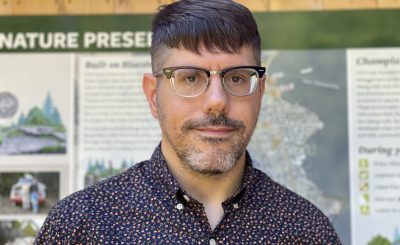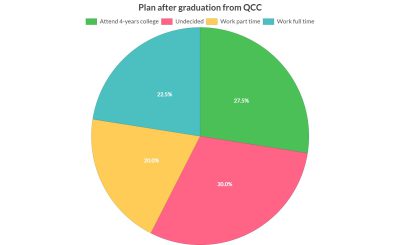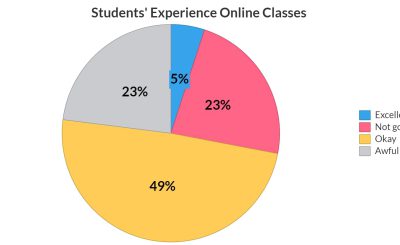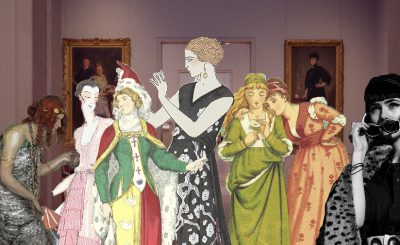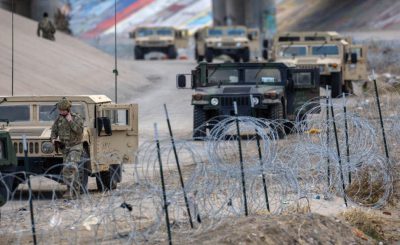By Zuri Moon. COVID-19 was a turning point in the world for which few of us were adequately prepared. New York City was hit particularly hard due to its unusual population density and heavy reliance on public transportation. When cases increased exponentially, businesses shut down abruptly and employees were laid off, furloughed, or had to work from home. Schools switched to online learning and both teachers and students scrambled to learn the programs required to attend classes from home. As the weeks ticked by, newly graduating high school students wondered what their immediate future would look like.
No one was sure about what was going to happen. “My first thought was, ‘How is this going to impact my graduation and my college experience?’†Queensborough Community College student Akimani Vargas recalls when asked about the first time the news on COVID-19 broke. She did not anticipate how serious the outbreak was at first. “I honestly thought it was going to end in a couple months.†The gravity of the situation became immediately clear when Governor Cuomo ordered a city-wide shutdown in March, and events like concerts and parades were cancelled. People were discouraged from leaving their houses, and masks became mandatory. The bustling city became a ghost town overnight. Students did not even receive the opportunity to hug their friends goodbye before they graduated through Zoom calls and left the city for good. Their worlds shrank to the size of their homes.
The quarantine affected many people’s mental health. Nate Moore did not enjoy his time in isolation. “It mainly made me realize that I wasn’t as introverted as I thought I was. I learned that I truly, truly need that social interaction or else I will end up getting depressed. That was what quarantine was. Just a long depressing Sunday and just anticipating that it would be over but it never was.†People who thrived on social interaction did not know how to handle this uncomfortable situation alone, and people who initially believed that they were fine with being alone found it difficult to cope when being forced into it.
Being stuck indoors did, however, give some people the opportunity to rest, recharge, and focus on different things that they didn’t have the time for before. “I feel like I coped with quarantine pretty good to keep myself busy. I did start a little business venture which was great and kept me occupied for a little while so that was a great experience on having my own little business,†says QCC student Francesca Dallemand. Another student, Keshawnie Sterling, started their own Youtube channel called “Living it up with Keshi†due to the quarantine. Akimani used her time at home to take up writing—mostly short stories. Lain Kelloggs refuses to let the pandemic hold him down. “I’m very passionate in making music. I make music to keep my sanity in this crazy world. I already have a plan which is to graduate with a bachelor’s in computer science that would help pay the bills and allow me to work on my music and maybe upload some content.” The summer of 2020 ended up being a productive time for many, fueled by feelings of restlessness and a desire to take charge of the situation in their own ways. It was a rare chance to try new things without worrying about wasting time. After all, everything else in their lives had freed up outside of their control.
As the new school year began, students faced the hurdle of online learning once again. After the initial confusion of dealing with synchronous and asynchronous classes, they quickly realized that they were mostly left to their own devices (and quite literally at that). Professors post class notes and assignments on their own schedules, causing students to check back on Blackboard multiple times a day. Each professor uses the learning hub differently—some are extremely detailed and take advantage of features like discussion boards and Blackboard Collaborate rooms, while others are almost completely hands-off and prefer the more traditional method of mass-emailing once or twice a week. The system is both organized and inconsistent, and with the pass/fail option gone this semester, students are forced to adapt quickly.
For students who are used to walking into a classroom and physically handing in their assignments, online classes are a new obstacle separate from the actual learning process. While some struggled with accessing the online material due to bad internet connections at home, others missed the human connection. “The biggest difference with me is interacting with people, because you don’t really interact with anyone now that you’re doing it online,†says Akimani. “I thought it would be better for me because it was good to end high school online, but I think it’s kind of harder to get used to doing the classes and actually doing the work now that I’m not in school.†Without the ability to meet with classmates and teachers in person, it is difficult to find the experience stimulating or rewarding. Although Akimani had chosen to attend Queensborough Community College because it was easy to commute to, it is no longer a factor in this situation since every student would be receiving their education from home. Now she is reconsidering continuing her education after QCC: “If schools don’t open I don’t think I’m going to go to a four-year. But if schools do open, I’ll probably think about it because of the major I’m majoring in because it would be best to go to a four-year.†Even in the middle of a pandemic with no reliable estimate on a vaccine, students must go through the motions of taking classes and eventually earning a degree because it remains one of the only constants in their lives. With or without COVID-19 schools will continue teaching, so students must continue learning. However, the future is even more unclear when we do not even know if we can interact with each other in person in the next year or two, or if jobs will be available for new college graduates.
The world is becoming more and more grim for younger generations. With human rights being constantly violated in front of our eyes in other countries and at home, global warming impacting temperatures at an exponential rate, and minimum wage staying the same despite rising inflation, the last thing humanity needed was a deadly global pandemic on top of it all. The future is uncertain, and young people are filled with anxiety. Although the pandemic has thrown everyone for a loop and there are many flaws with online learning, the students at QCC have decided to continue their education and have even found ways to be productive in their individual pursuits. They are making the most of what they have—even if it is not much—and they will continue to do so.

